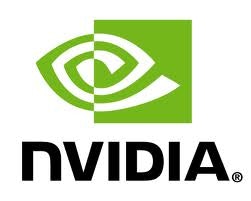NVIDIA Corporation (NASDAQ:NVDA) is thought to be ahead of the curve and a bellwether for gaming trends. With the launch of the company’s latest initiative, it will have the competition of new generation consoles from companies such as Nintendo, Sony Corporation (ADR) (NYSE:SNE), and Microsoft Corporation (NASDAQ:MSFT).

Nvidia Embraces Mobile Gaming
In an effort to modernize gaming options, NVIDIA Corporation (NASDAQ:NVDA) has gone mobile. The company recently launched a cloud gaming platform called Shield, which should make it cost-effective to stream games on mobile devices such as laptops, tablets and smartphones. This gaming device looks like a console controller but also has a pop-up screen. Game players should be pleased to note that the Shield works for “Angry Birds,” can wirelessly link to some PCs, and can be connected to a television. Jen-Hsun Huang, Nvidia’s CEO, indicated that “this is going to be the best way to enjoy games in the future”.
This move will categorically appeal to game players who have the desire to play on the go, which is a notion that is gaining popularity. Revenue from downloaded games grew 16 per cent year over year to $5.9 billion, according to NPD Group, which is indicative of an increase in the demand of mobile games. This move should have a positive impact on NVIDIA Corporation (NASDAQ:NVDA)’s revenue flow. Bloomberg has indicated that the company’s sales grew by approximately 7.1% last year, and this was as a result of branching out into mobile devices.
Nvidia Is Also Hedging its Bets
NVIDIA Corporation (NASDAQ:NVDA) is working on multiple projects and not just the compatible-with-everything Shield.
In a news release on the company’s website, Nvidia indicated three different products. First, it’s Razer Edge Pro streamlined 10.1-inch laptop is expected to go on sale later this year. According to the website, this gaming platform “is a powerful PC processor and an NVIDIA GeForce GT 640M LE GPU, giving the device the power to play games normally consumed on desktop PCs and bulky gaming notebooks.”
The company also drew attention to the Ouya, which the company says, “puts the games built for Android smartphones and tablets into a slick $99 Yves Behar-designed console powered by an NVIDIA Tegra 3 processor.”
And last but not least, the Shield Portable was mentioned. It is slated to go on sale in the second quarter of this year. Nvidia noted that “The Tegra 4 powered device will pair a retina-quality 5-inch screen and console-quality controls with the ability to dip into the thriving Android mobile gaming ecosystem. It will also be able to stream games from a PC powered by an NVIDIA GTX 650 or better GPU.”
Expect Change
Sony is expected to launch a new “PlayStation 4” console system. The new console is expected to bring a new life to the video game business, which has suffered declining sales and questions about the future of game console systems. Seven years have passed since Sony launched PlayStation 3. Sure, it was a smashing success, with 77 million units of the console sold around the world. Microsoft’s Xbox has been very successful, too. However, smartphones and tablets have sideswiped the gaming market and constitute a secular disruption across the entire gaming industry. Like Sony, Microsoft is expected to start selling the latest version of its console by the end of 2013. It is unclear whether many consumers will respond.
Demand Lower Valuations for Console Makers
Investors should be willing to pay more for game software stocks than game hardware stocks. Their brands and copyrights can be transferred across platforms and even across media. This is not the case for largely incompatible console systems.
Many video game developers have done very well. Activision Blizzard, Inc. (NASDAQ:ATVI) reported fourth quarter results that beat analyst expectations. Revenues were boosted by its “Call of Duty,” which ranked as the number 1 best-selling game franchise in 2012, and “Skylanders,” which ranked number 3. Take-Two Interactive Software, Inc. (NASDAQ:TTWO) is also doing very well. It reported that its net income rose to $71.4 million during the third quarter, much higher than net income of $14.1 million for third quarter in the previous year. Take-Two Interactive is planning to launch Grand Theft Auto V in September 2013.
Valuation
Sony is cheap enough to make it a compelling hardware stock:
| Ticker | Company | P/E | P/S | P/B | P/FCF | D/E | EPS Growth Next 5 Years |
| SNE | Sony | NA | 0.22 | 0.72 | 17.38 | 0.69 | NA |
| TTWO | Take-Two Interactive | NA | 1.29 | 2.49 | NA | 0.58 | 8.3% |
| NVDA | Nvidia | 14.06 | 1.85 | 1.64 | NA | 0 | 10.5% |
| MSFT | Microsoft | 15.47 | 3.23 | 3.25 | 11.41 | 0.2 | 8.4% |
| ATVI | Activision Blizzard | 14.22 | 3.29 | 1.41 | 12.58 | 0 | 8.9% |
At a discount to the book value of its assets, Sony is attractive as a technology and media stock. It also trades at a very low price-to-sales ratio. Take-Two Interactive is also trading at low price-to-sales ratios relative to other gaming stocks while having comparable growth prospects.
Conclusion
Nobody really knows what is going to happen to gaming. Games may be played on souped-up PCs, new versions of familiar consoles like the PlayStation 4, or on mobile devices like tablets. They could also be played on some hybrid system or something entirely unknown today.
Since there is considerable competition between platforms, speculators should demand attractive valuation multiples as compensation for the risk of any particular platform becoming unpopular. Sony and Take-Two Interactive are cheap bets for software at today’s market prices.
The article Should You Invest in the Competitive Game Console Industry? originally appeared on Fool.com and is written by Bill Edson.
Copyright © 1995 – 2013 The Motley Fool, LLC. All rights reserved. The Motley Fool has a disclosure policy.




